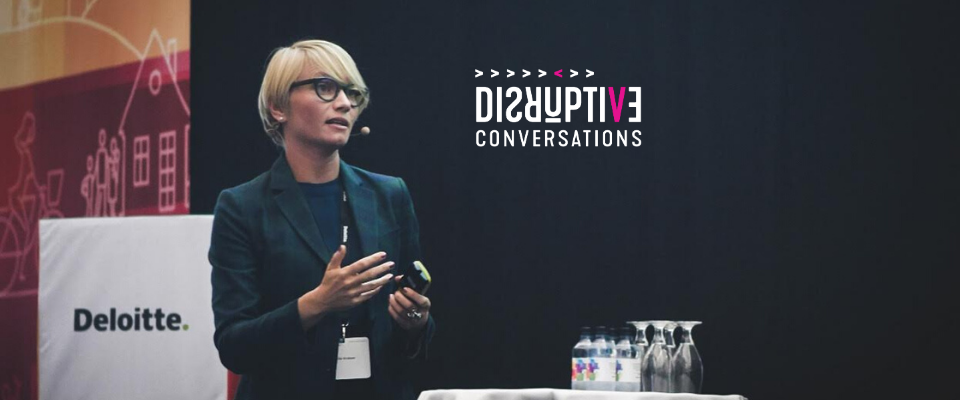Sille Krukow is a Nudge Behavioral Design expert. She describes her work as using applied behavioral science to work to change behavior in a variety of industries. She stumbled into the field out of a desire to create an impact in the world. In her previous experiences, she found that she did great design and campaign work but she was never really able to create real change.
Her insight was that if we are to impact the world, we need a different set of skills than what we are currently taught in design schools and traditional education.
Her disruptive internal conversation was that she realized something was missing in the way we thinking about behavior change. Providing information or telling people about the importance of change or why they should change was not working and does not work. We need more. Consequently, she has honed her expertise as a Nudge Behavioral Designer.
We need to change the way we think that we change behavior
A good friend and mentor of mine say, we need to change change. For Sille, she draws the insight from Nobel Prize-winning work of Daniel Kahneman and Amos Tversky. She reminds us that the brain is divided into two basic systems. System one, the fast-reactive portion of the brain. While System two is the slow reflective portion of our brain. Additionally, when we draw on System two it takes a lot of energy and drains our blood sugars. For most of us, we are under the illusion that our behavior is driven by the thoughtful side of our brain. The truth is more likely that most of our behavior is driven by the fast-reactive side of the brain.
Behavior design is contextual and specific.
The first challenge in designing behavioral change is understanding the context in which we seek to create change. The second task is getting very specific about what change we seek to create.
This is where Sille looks for missing nudges. After understanding the missing cues, she then works to design nudges that will create the change she seeks to create. Sille and her team draw on a library of behavior change principles. Using these behavioral change principles, they then build culturally specific behavioral cues or nudges that then create the changes they seek to create.
What is a nudge?
A nudge is an intervention in our surroundings that makes the right decisions, the easy ones. The challenge for Sille is in implementing. Especially at a broad scale. For example, she and her team explored the perception of toilet hygiene on trains. People generally perceived the hygiene as fairly poor. One of their solutions was to change the colour of the toilet paper from white to bright blue. And by making this small change, they increased the perception of hygiene in the toilets by 51%. That challenge was the blue toilet paper was more expensive and difficult to implement.
Change lies in the small things.
Sille explains the very novel solution known as the fly in the urinal. The fly in the urinal was used by one architect to improve hygiene in male toilets. He used a technique anthropologist Mary Douglas calls matter out of place. The architect placed a small fly in the urinal. The fly was a matter out of place element of design and bumped men out of System one when they need to pay attention. This small intervention reduced the amount of urine on the floor by 80 percent.
Be a tourist in your own organization.
When Sille talked about this, it reminded me of the Buddhist notion of seeing like a 4-year-old. Seeing things “as if” you are seeing them for the first time. Sille understands change as an “in the world activity”. We need to begin by understanding what people are actually doing within the context we seek to create change and then design nudges that fill-in what is missing.
Important Links from the Episode:
Sille and her team have created open-source COVID19 nudges that you can download here: https://www.krukow.net/covid-19nudges
To learn more about her work visit her website: https://www.krukow.net/
